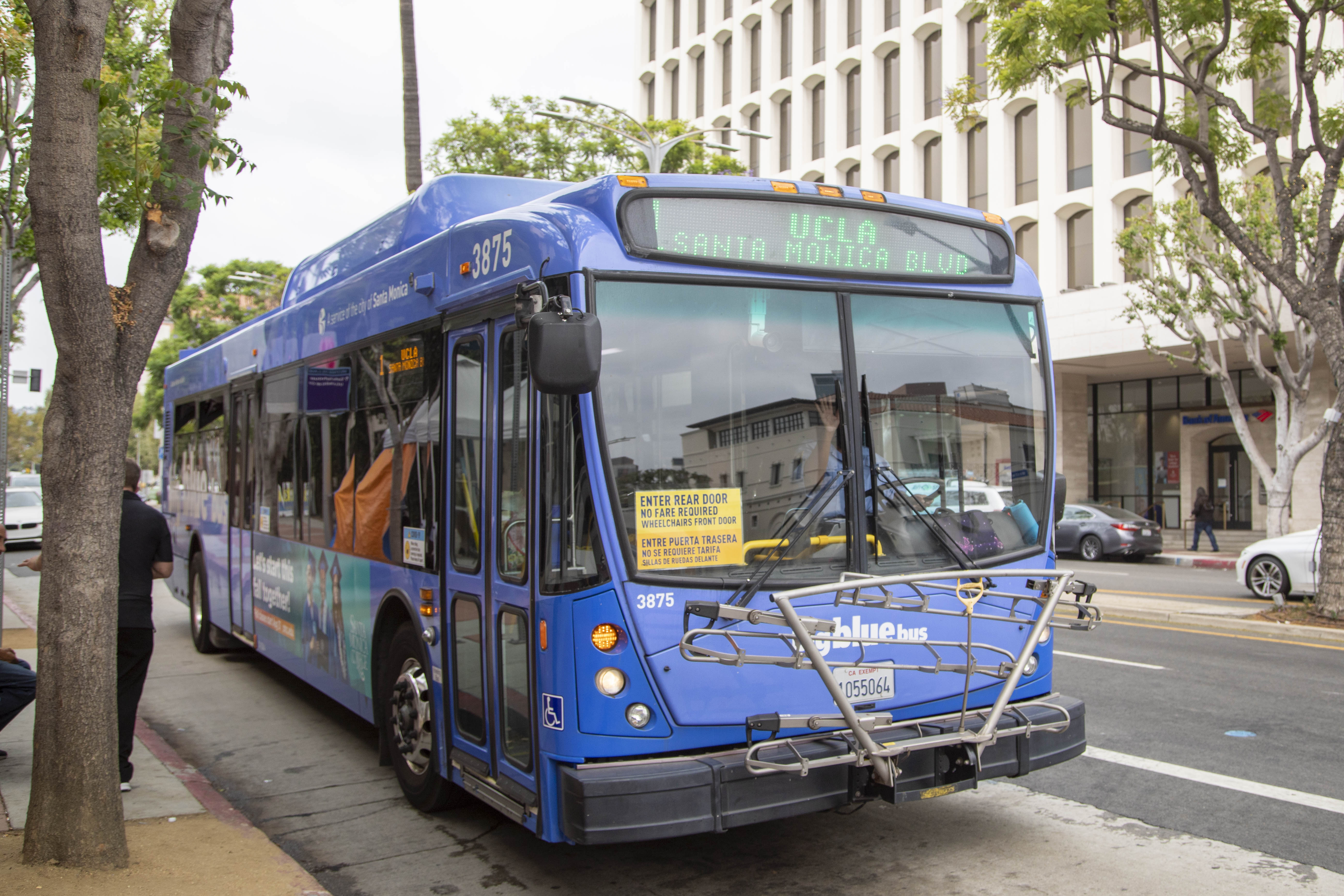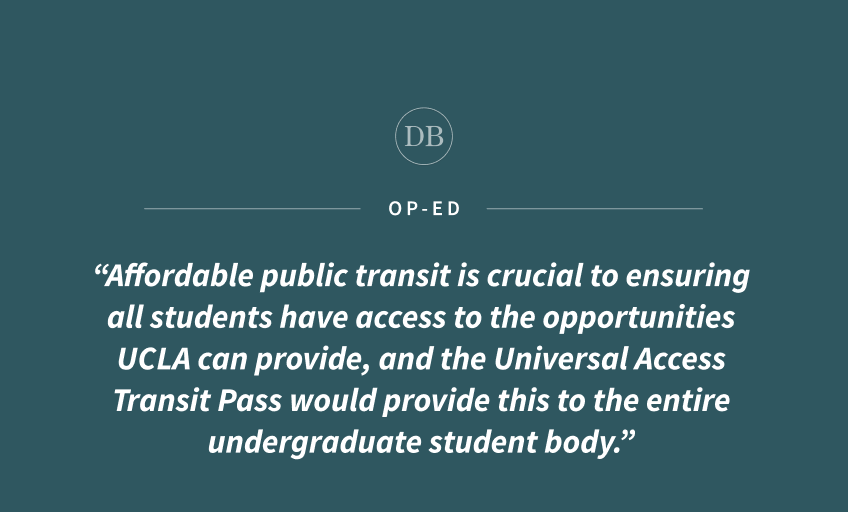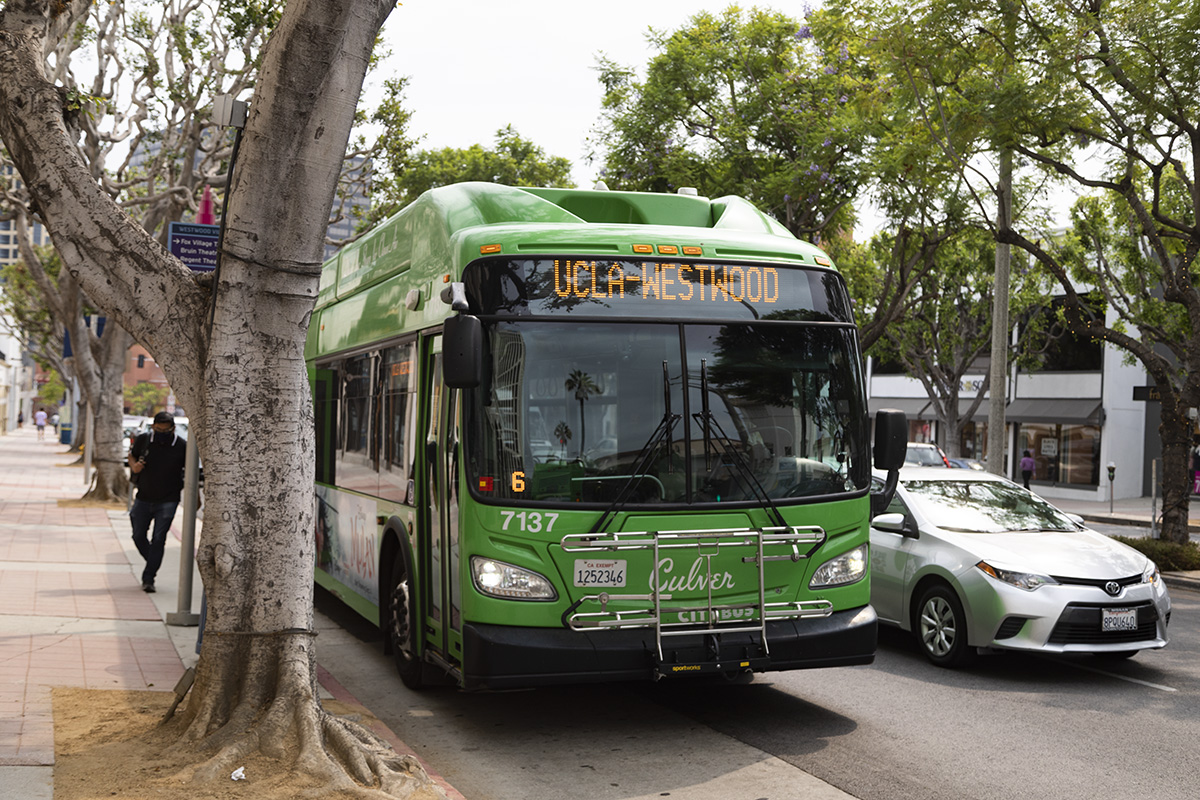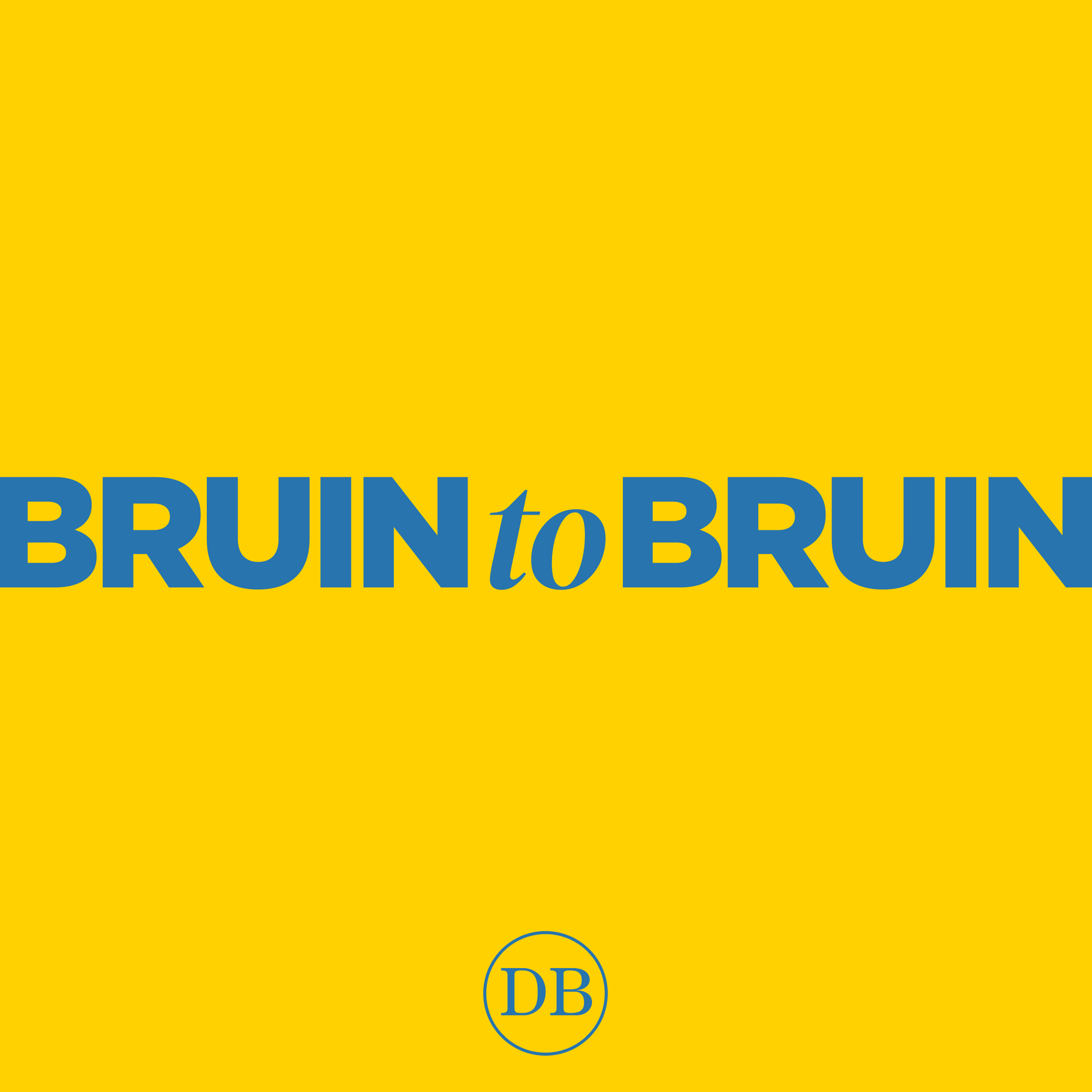Bruin to Bruin: Donald Shoup
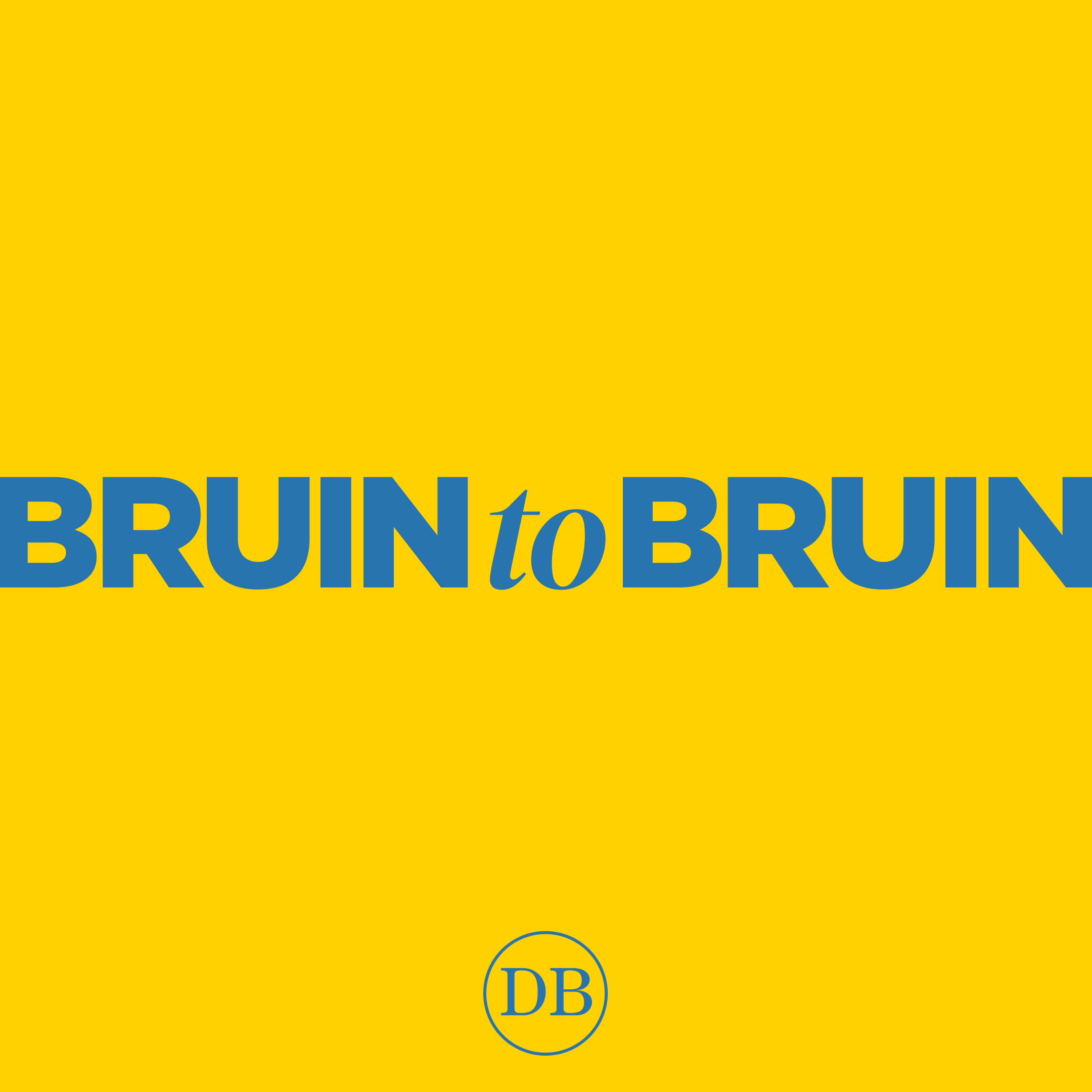
Photo credit: Helen Quach
By Ava Johnson
April 16, 2024 10:08 a.m.
Donald Shoup, UCLA professor of urban planning and expert on parking policy, joins Ava Johnson to discuss his career, passion for parking and advice for UCLA students.
Ava Johnson: This is Bruin to Bruin, and my name is Ava Johnson. Today we’re joined by Donald Shoup, UCLA urban planning professor who has spent almost 60 years on the UCLA faculty, and has dedicated most of his career to discussion of parking. Not exactly a topic that seems particularly impactful to UCLA students, but he disagrees. Today’s podcast focuses largely on parking, but also includes Shoup’s advice for college students, and some advice for the greater UCLA area.
So to begin with, a lot of UCLA students don’t really have cars of their own, and if they don’t, they don’t necessarily think of parking as a big part of their lives. Can you explain why you feel that we should all care about parking a little bit more than we do?
Donald Shoup: Well I don’t know why everybody has to care. A lot of people have cars of anybody who has a car and worries about parking, especially at UCLA. Back in the 1980s, the university surveyed about 7000 students and said, “Well, what were the difficulties that they faced at UCLA”, and then maybe 30, were raised, parking was the number one issue. Even people who didn’t have a parking permit said that it was the biggest issue at UCLA. And I think that if students say that parking is more important than writing well, at UCLA, I think that parking must be very important. And when you’re waiting in line at Lu Valle Commons, or any place like that, you listen to the people before you or after you l, they’re talking about parking.
AJ: That’s very interesting. I know, a lot of my friends are thinking about getting a parking permit for next year. And they’re very stressed about that. So it definitely is quite a big problem for a lot of students.
DS: Well especially because there are very good things that other universities are doing that I think UCLA should do to make parking much less of a problem for people who own a car, and then to be fairer even to people who don’t have a car.
AJ: Do you have an example of something that another university is doing that you think we should try to implement?
DS: Well MIT was the first university to do this, and the UC Davis did it about three years ago. If UC Davis can do it, so should UCLA. Their system was like ours, you buy a quarterly permit, and you pay a lump sum. And, you could park every day, but you’re told exactly where to park in the parking structure. So if you have a permit then you could park as often as you’d like, it’s free. It says marginal cost is zero, as economists would say. Which encourages people to drive once they get a permit. And they bought their car, they paid for their insurance. So they have a tank full of gas, why not drive. What Davis does is they switch to a system where people pay for parking every day, and they don’t have to stay in any one structure, the way we do at UCLA, like, the most convenient spots are more expensive. I think it’s $4 a day, and a parking lot farther away, that’s in Siberia would be $1 a day. So if you’re late for class one day, or it’s an important issue, you will be willing to pay more for parking. If you’re short on funds, and you have time you could park farther away and walk farther. But every day you have to pay something. There’s no quarterly permit. So I think it changes the decision from a big fixed cost of paying $240 a quarter. Or would you rather pay by the day, so that you’re not paying for days that you don’t come. See if you buy a quarter the permit you’re paying for times you’re not using it. So I think it’s much fairer. And it’s cheaper for both students if they have what they pay, the sum of their payments is much less than the cost of a parking permit. So the only downside is that you would have to pay everyday and you do pay it by cell phone, which maybe takes 30 seconds. Once you get used to it, It’s very easy to do. But every day you have to make a decision. Do I want to drive? Do I want to bike? Do I want to walk? Do I want to carpool? Do I want to take Lyft or Uber or a Bird? You have a lot of choices. But parking has a price every day. And what Davis did is they followed what MIT had done. They’re right next to a river and their parking spaces and the gaurages are horrendously expensive, over $100,000 of space. And instead of building more parking spaces, the university said well let’s change the way we charge for parking and charge by the day.
AJ: So why are we seeing these problems in cities as well and kind of why we’re not really seeing a change in the way that parking is incorporated into cities if we have such a big problem with it?
DS: Well, I did get into cities rather than campuses. I think a lot of things are happening in cities. So I recommend three three reforms. And one is to remove all street parking requirements. Nothing can be built in those cities, unless you have the number of parking spaces the city requires and in Northwestward village, the city requires three and a half parking spaces per dwelling unit. If they had more than two bedrooms, you’re gonna have to have three and a half parking spaces, which is horrendously expensive to dig down. The parking space costs almost as much as the apartment. And that limits the amount of housing that can be built in the northwestern villas. And people thought, well, there’s a shortage of parking. Everybody knows that in the Northwest village, how could you allow a new building to be built without a lot of Wall Street parking? Well, it drives up the cost of housing and it reduces the supply which is bad for people, for students who want to live in the North Village. But half the people who live in the North Village, your students, or more than half – that’s the population of the North Village, turns over, half of the people are new in the village compared to last year. So a lot of people move in and out and most of them are students. It’s just a short walk to campus. But parking is a nightmare. The cars parked on the sidewalks. So what the state has done, instead of forcing developers to provide more parking, it prohibited off street parking requirements within a half mile of public transit. Throughout the state, cities cannot require parking within a half mile of major transit stops, and that covers half of Northwest village. So it started this month last January this came in, half of the village, no parking spaces are required. And I was told by the planner for the agency, there were already seven applications to build new housing without parking. So the department houses two, three for four people in an apartment, and it has no parking spaces at all. That would never be allowed until last year it would never be allowed to the rest of the villas but UCLA is exempt from minimum parking requirements. So it shows what can be built for students. If there are no parking requirements. If you would have to provide three and a half parking spaces for each one of those apartments. In the new building, it would never be built. So I think that a lot of things are happening about minimum parking requirements. Oregon has a similar law. The second thing I’d recommend if this would also be useful in the northwest of England is to charge the right price for curb parking on the street. Most of the off street parking in the North Village is free. You can park on some of the most expensive land on Earth, but it’s free if you buy a car. Of course then that means it is impossible to find the space and people drive around and hunt for a space. So I think the cities ought to charge the lowest price they could charge and still have one or two open spaces on every block. It would have to be a different price at different times of day and days of the week. But whenever you drive into the village you see that there are two open spaces on every block just for the driver who wants to see and then 10 days are particularly popular. You spend all that revenue to pay for added public services in the North Village. All the broken sidewalks could get fixed, all the trash, all the sidewalks could be removed. The dead trees could be replanted. There is a lot of graffiti that could be removed. Some cities have done this. They have the parking benefit district and they spend the meter revenue. I mean if the city puts in parking meters all the revenue goes to pay for proven public service on the blocks that have meters. If you don’t have the meters you don’t get the money. If you have the meters you get the money and I say to the public services and the doors of Westwood Village are dismal. That is, their lineup of pedestrians has broken sidewalks. So I think that would be the first thing to do. But it’d be much better for disabled students who now have to use a wheelchair in the street. Which is dangerous, because the sidewalks are impassable. So those are the three things I recommend is remove all street parking requirements, charge the right prices for curb parking, and spend the revenue on public surfaces in the neighborhood, the first two are already happening in Northwest village, the Northwest village, I’d say the city is just has not done anything about charging for curb parking.
AJ: And so would you say that that revenue should also go into public transportation as well? Or would that just be going into kind of the beautification of these neighborhoods?
DS: Excuse me? Could you repeat that a little bit louder?
AJ: Would you say that this revenue should also go back into public transportation as we’re trying to reduce the amount of cars on the road? Or would that just be going into the streets that have been easier?
DS: Well, I’d say more students ride public transit than drive to campus. But I think one of the things that UCLA has finally got on board with is having a universal transit pass for all students that the university arranges with the blue buses, Metro, that students can ride free just because they’re UCLA students. I think that’s so much better than building another parking structure that is subsidized by everybody. So if you have to pay for parking every day that you’re coming to campus, transit is free. Many people would be convinced, well, maybe I’ll take the bus. Some days when I’m not in a hurry. And I think UCLA was the one of the last universities to adopt this. But it was also one of the first to begin the year 2000 to 2003. The university tried it out and said, well, they gave free transit to all faculty, staff and students for three years. And then, it was paid for by the parking revenue. And the parking service was fed up with paying for competition for what they sell, they sell parking, and they were paying people not to use it. So UCLA was the only university I know of that hadn’t ended this parking, this universal transit pass, and the students got themselves together. They petitioned for a transit pass that they pay for, they have to. There’s a – I don’t know if you looked at your tuition bill, but there was a payment in there for our free transit pass.
AJ: So your degrees in electrical engineering, and then you have a Ph.D. in econ, but you’ve really made a name for yourself in this area of parking and transportation. Can you sort of describe for our audience how you went from making that switch? Or how those degrees built up your interest in those areas?
DS: Well, that’s a good question for our students, because it’ll happen to you, as well. You don’t know where to go, which way you’re going. And neither did I. But I think electrical engineering teaches you how to work. The main thing engineering does for students is really teach you how you have to work and you have to pay very careful attention to the data. You have to make sure that the data is right, or else you’ll electrocute yourself, or a bridge will fall down or something like that. So it’s very, that’s very important. And then I took electives and economics appealed to me. So I double majored in electrical engineering and economics. And the damage was done, I got a Ph.D. in economics, and I did my dissertation on the open land market. And that got me interested in urban planning. And I started out teaching urban economics at the University of Michigan. And then in 1974, I came here to the planning department, urban planning program, and then naturally, parking, I noticed was the single biggest land use in any city. There’s more land for parking than there is for the footprint of housing or commerce or anything else. But it was almost all free and I just wanted to know how something that’s so expensive, be free for parking when we’re trying to reduce traffic congestion and air pollution? Or global warming, so I felt there was something to find there and I’ve worked on it for long enough. People thought it was not very sexy, I told her, but I think it is very sexy. Some of you were probably even conceived in the back of a parked car. So I think that it’s done well by me. I guess the third reason I’d like to think about parking is so easy. It’s so easy to think of good ideas, because nobody else was thinking about, I guess, I was in a, I had a very low status and in terms of topics to study or write about. So I think for about 30 years, I was a bottom feeder. There was no competition. But there’s a lot of food down there. Parking was a big deal. And that was almost like a feeding frenzy. There were a lot of students writing PhDs on parking, and there were a lot of articles on parking. It’s a big thing on the social media now.
AJ: Yeah, kind of talking about the popularity of that. Can you talk a little bit more about the following that you’ve developed called the Shoupistas? And can you tell me a little bit more about how that’s developed and how you’ve seen progress in the movement of parking and transportation because of this group?
DS: Well, it’s all because of young people. I think the young people are the ones who are the ones who worry about the environment, and how to improve cities. And one of the people who was the first undergraduate at Stanford, who picked up on what I was writing, that he became a consultant on parking in San Francisco on the parking scene, that transportation dollars would gather at one bar. And he would often say, Oh, you see the latest thing that Shoop wrote, they were fed up hearing about it. And that one guy looked at it and said, You’re just a Shoupista. And the name stuck, it sounds kind of Marxist. You know, in Latin America it just means, like -ist in English, Like a Sandinista or a Chavezista or something like that. So it sounds radical, but it’s quite market oriented. So I think the people from the left and the right, have picked up on this. And then the shock, there was a Facebook group, and people posted just articles about parking problems or parking reforms around the world. Because, yes, I could see maybe posting a link to an article. And if you’re a young person who thinks that the air is polluted, the traffic is congested, poor people are harmed because the world is made for people rich with enough to own a car. You know, there are all kinds of reasons across the political spectrum to agree with these, these policies for conservatives are realized on the market where the government is not telling us what to do and is backing out of telling the people what to do. And it helps businesses because they don’t have to pay for parties they don’t want to provide added help to liberals because it provides public services. Libertarians like it because the government isn’t telling them what to do. Environmentalists like it because fewer cars. Whatever your cause is. I’ve tried to show people that pocket reforms will help you. Not many people will really be interested in parking itself the way I am. But I’ve been able to convince most people, the park reform helps what you care about whether it’s affordable housing, or global warming, the parking reforms will help you
AJ: And is this something that you’ve also been teaching directly at UCLA? Or is this more on your own time outside of your role as a professor? Well,
DS: No, no I think at UCLA, the staff is always published for search, you have to have to get the articles published. So that that sort of forces you to publish or perish. You’ve heard that. So I wrote a blog about parking and it was a demo bottom feeding, nobody else was writing about it. So I think that it’s now becoming popular, but I, and I think it’s gonna be more popular. I think this is just the beginning. This is just the beginning.
AJ: Do you feel like there’s anyone that’s also working on this topic of parking that you would really agree with or really disagree with kind of another perspective that you think is really interesting?
DS: A lot of people. The TA of my course is one of the key Ph.D. students in urban planning. And I think during his first year here he published a wonderful book called on title Arbitrary Lines about how arbitrary zoning is that don’t just parking requirements, but zoning that, say on the east side of campus, you probably see the bench, huge houses they have, it’s like a full time job just living in them. But zoning prohibits any of those to be converted into apartment houses, the zoning knows that single family housing out of somebody wanted to take out an old house and put an apartment building with five or six apartments. That’s not allowed by the city. So I think Nolan is one of the people that I agree with most, but there are a lot of others. I guess I’m an evangelist. I don’t want to give up. That’s why I’m happy to be on your podcast.
AJ: Well, thank you. Is there any class that you’re teaching either this quarter or next quarter that you think is particularly relevant to UCLA students, the greater UCLA area?
DS: I teach a course once a year, another spring quarter called parking, and the city was kind of ambiguous, and most people, the students, tell me, what a ridiculous name for our course. And why would you ever take a course on parking? They’re always oversubscribed.
AJ: And so that’s really talking about essentially what we just talked about here. So if anyone wants to listen to this podcast and wants to learn more, they would be able to do that in that class. That’s fine. Well, thank you so much for joining us. Is there any advice that you would want to give to students that’s a little bit more general than just sit out public Transportation and parking?
DS: Well, I don’t know if I should recommend it to everybody. But what worked for me was being convinced that something was wrong. There was something wrong in the city, and I have thought of a way to fix it. And other people were just disparaged zones just parking. But I kept at it for a very long time. And if you follow what you think is the right thing to do, even if it is popular, even if it seems trivial, or, or impossible, or or simply unfeasible. I think, in my case, it helped to stick with it. Even when it was very unpopular as a topic for an urban pilot to talk about Planet Earth to talk about.
AJ: So that’s a great note to end on. Thank you so much, Mr. Shoup.
DS: Okay, well, thanks for giving me the platform. As I said, I’m an evangelist. And I am willing to spread the word. Okay, farewell.



